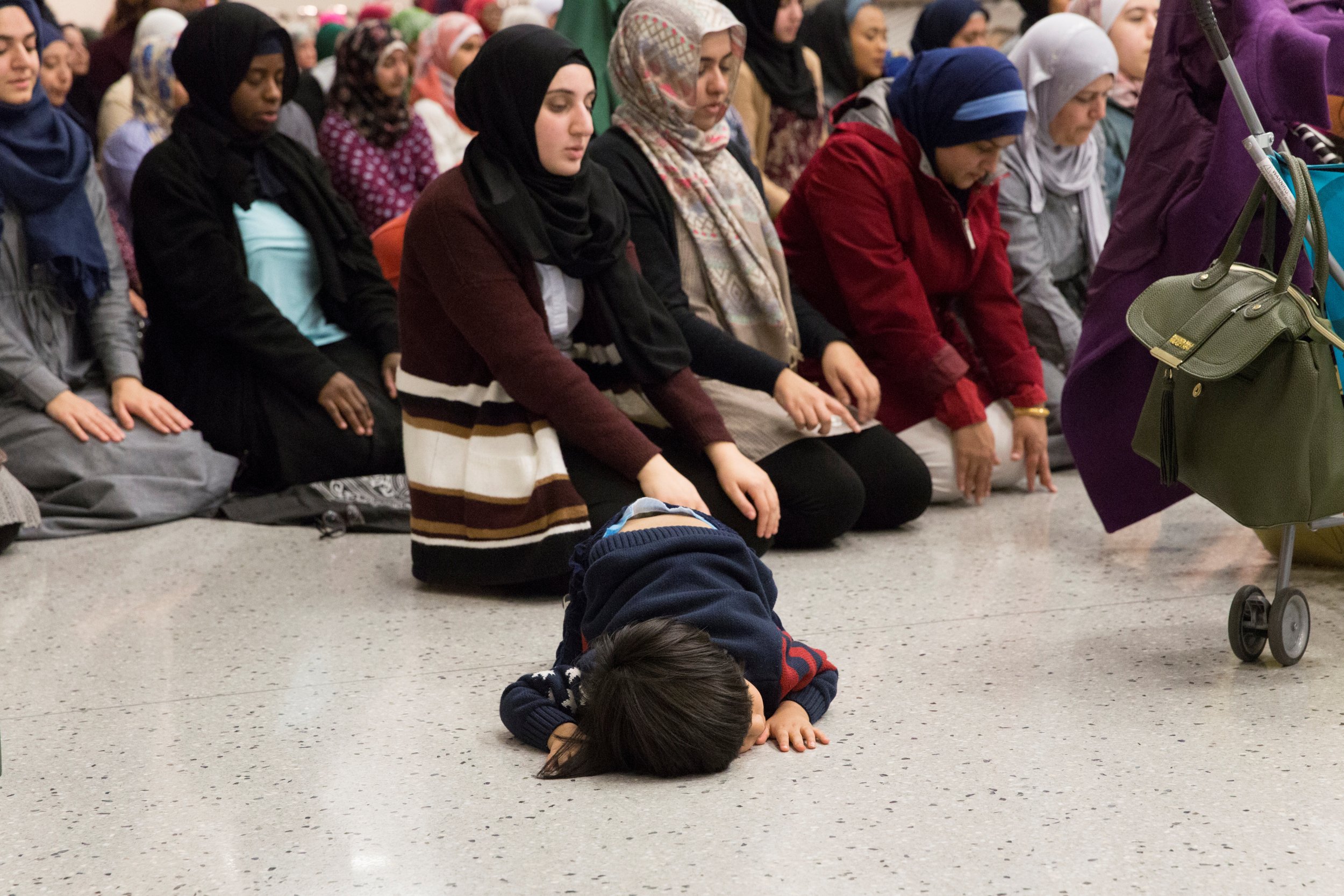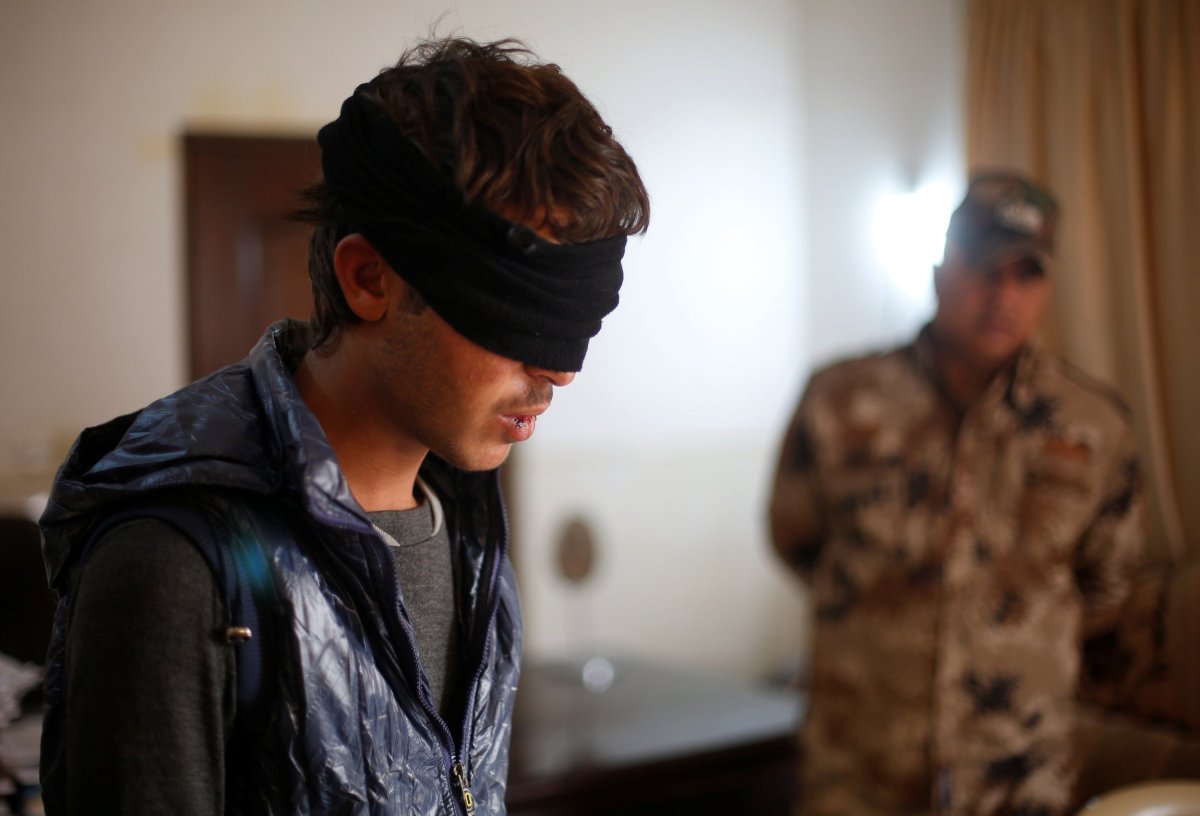
I stood dismayed, the cold piercing my body, staring at a bleak landscape. It was 2002. I had just ended my first interrogation session of an al-Qaeda terrorist at one of our "black sites." I wanted, like all my colleagues, to find and destroy the Islamic terrorists who had attacked my country. And I knew, because it had been my life for 20 years, how relentless, how powerful, how terrifying in righteousness and blunt strength, how awesome the United States intelligence and military forces were. But my horror went to my marrow, for the terrorists were a lesser concern; I was afraid about what we had done to ourselves, out of sight and in the shadows. I have spent the past 15 years trying to warn my fellow Americans.
On Friday, Donald Trump and his Republican enablers effectively banned the entrance of Muslims to the United States from seven countries—all 212 million of them. The intent, ostensibly, is to protect America from the threat of "radical Islamic terrorism," until, presumably, America is able to answer the one question Donald Trump appears capable of asking: "What is going on?" But the answers to his question have been known for years.
Muslims and Radical Islamic Terrorism
There is a reason officers who know what they are talking about do not use the expression "radical Islam." It tars an entire faith and it contributes to creating the religious war Donald Trump fears. But this "war" in truth only exists in the minds and actions of a small fringe of Muslims—and, it must be said, in the minds of some Christians. The Commander in Chief—and all of us—must first know our enemy before we can fight it. The Muslim ban will make us less safe; worse, it erodes our democracy and contributes to making us a fear-and-hate-filled, divided nation, at war with the world and progressively ourselves. It need not be so. So, here are the facts:
Terrorists: For all our fears these past two decades, there are, in the world, if we err as we should on the side of caution, perhaps several thousand Islamic terrorists, all groups combined. We can define an Islamic terrorist as someone "who uses unlawful violence and intimidation, especially against civilians, in the pursuit of political aims," in this instance killing through terrorist acts anyone who does not adhere to the most absolutist, most intolerant interpretation of Islam possible. But that is it: Several thousand. Even at its height, al-Qaeda consisted of perhaps 600 members, of whom several dozen could conceive and conduct a terrorist strike. It is true, of course, that only one terrorist can kill many people, and must be stopped before he does so.
Jihadists: There are several dozens of thousands of jihadists worldwide. We can define jihadist, as Westerners and counterterrorism officers use the term day-to-day, as a Muslim who uses violence in what he (or she) considers the defense of Islam, or to impose Islam on others using violence. These are, broadly speaking, the foot soldiers of the Islamic State in Syria and Iraq (20,000?), a relatively small percentage of the "insurgents" who fought against the United States in Iraq (most insurgents were nationalists or militants for their particular strain of Islam, rather than jihadists purely attacking infidels,) the Taliban or the fighters of Boko Haram in Nigeria, and elsewhere. They will kill infidels and commit acts of horror, but do not normally conduct terrorist acts. Their actions are overwhelmingly related to specific cultural and geographical grievances and disputes. There are, however, thousands of "foreign fighters"—jihadists who go somewhere to engage in what they perceive is the defense or expansion of Islam (e.g., Chechens or Somalis in Iraq; Saudis in Libya, etc.)
Muslims: There are 1.6 billion Muslims, one quarter of the earth's population. Overwhelming majorities of Muslims around the world, of all different "kinds," in widely varying political and social environments, reject the use of violence to impose "Islamic" practices—the concept of jihad as perceived by most Westerners—and share similar concerns of Americans about Islamically-inspired terrorism. And an important point: Many Muslims who express a generic "support" for suicide bombings or violence, most of the time are expressing the disembodied posturing of "coffee house revolutionaries," or in the case of Palestinians, say, express this "support" in a geographically and culturally specific set of political circumstances. When actually confronted with jihadist violence in their societies, when "jihad" becomes real and not only an emotional identification, only a very small, even fringe, minority of Muslims support "jihadist terrorism" or "radical Islam," as it is imagined by Donald Trump or Speaker of the House Paul Ryan. Just as many thousands of American university students expressed "support" for revolution and Castro during the 1960s and 1970s, while the number of those who committed violence, or joined the "revolution," was miniscule.
Jihadists in the Homeland
The problem is not so much one of Islamic terrorists coming to the United States on missions, which the Muslim ban is supposed to stop but will not. There are terrorists of this sort, but overall the counterterrorism services do a good job of identifying and stopping them. Instead, the phenomenon of Islamic terrorism has been progressively becoming one of inspired Islamic terrorists: individuals who do not belong to any formal terrorist group, but who have been affected by the narrative radical Islamists disseminate, that of religious war between Muslim and Christian, of unrelenting hostility by the West to Muslims, who usually feel alienated from the societies in which they live. These "little losers," in the expression I frequently used when serving in counterterrorism work in the CIA, may have some tenuous contact with a terrorist group, but mostly are simply "inspired" to act. This is the kind of terrorist who struck in almost every terrorist attack in the United States since the al-Qaeda attack of September 11, 2001: These are "inspired" Islamic terrorists, most of the time U.S. citizens; not Muslim terrorists sneaking in to the country disguised as immigrants, or refugees, or students. The Muslim ban will not keep terrorists out—none of the over 12,000 Syrian refugees, for example, has any connection to extremism or terrorism, a conclusion reached after the extensive "vetting" now in place that can take two years for a refugee or immigrant to get through. But the ban will feed the narrative of grievance and anger that "inspires" these marginal souls to become Islamic terrorist killers.

What have we become?
America rides as the fifth horseman of the Apocalypse when angered and afraid. As I stood shivering at the black site 15 years ago, I asked myself in horror, "What have we become?"
I became acutely uneasy that the CIA and all of us were being subjected to a de facto usurpation of constitutional and executive powers, rationalized with de jure, self-authorizing flimflammery…It was shocking to learn that the president's advisers informed him that his orders superseded our laws. We were becoming—in secret and out of sight …no longer the government of checks, balances, and law that has defined us as a nation….I feared that I had become part of what constituted elements of a de facto American junta….the measures taken and laws traduced justified by our leaders and their followers, as juntas do, as necessary responses to grave national danger.
Now the loss of our democracy is happening in the open, however Trump and Republican leaders rationalize it, through a gross ban on 212 million Muslims. There are countless foreign Muslims who devote their lives, and who lose their lives, serving the United States, because of the inspiring inclusiveness of what being "American" has always meant. Thousands of American Muslims offer their lives for these ideals, whereas our "Commander in Chief" has devoted himself without exception to…self-adulation, and yet in arrogant ignorance dares pass judgment.
We have passed as a nation from wrongly treating a few terrorists and suspects, some of whom deserved punishment but never torture, and almost all of whom our intelligence services stop before they commit their terrorist acts, to banning, alienating, and de facto declaring war on an entire religion. To no useful purpose. But even worse: We are losing our democracy. And we are losing our soul.
Glenn Carle, a retired CIA officer, was deputy national intelligence officer for transnational threats on the National Intelligence Council, responsible for the intelligence community's most senior terrorism analyses from 2003 to 2007, and author of The Interrogator, which detailed his involvement in the interrogation of one of the top members of Al-Qaeda.
Uncommon Knowledge
Newsweek is committed to challenging conventional wisdom and finding connections in the search for common ground.
Newsweek is committed to challenging conventional wisdom and finding connections in the search for common ground.
About the writer
To read how Newsweek uses AI as a newsroom tool, Click here.








